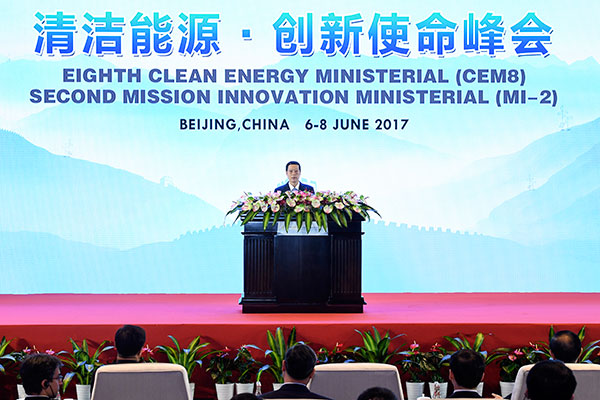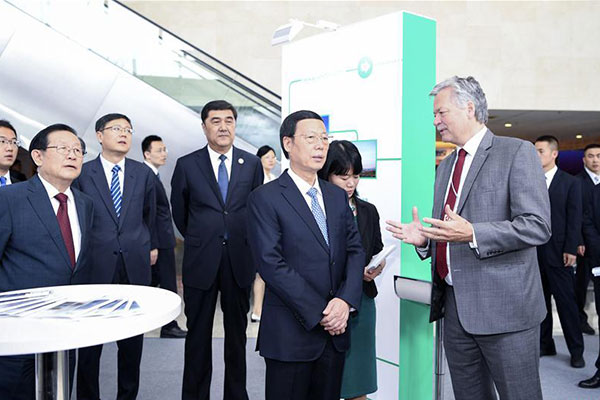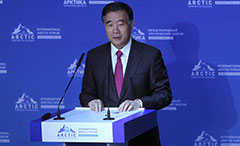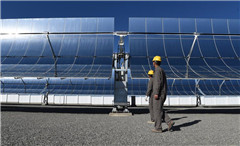Vice-premier calls for joint efforts in clean energy push
2017-06-07
Xinhua
 Vice-Premier Zhang Gaoli delivers a speech at the opening of the Eighth Clean Energy Ministerial and the Second Mission Innovation Ministerial in Beijing, capital of China, June 7, 2017.[Photo/Xinhua]
Vice-Premier Zhang Gaoli delivers a speech at the opening of the Eighth Clean Energy Ministerial and the Second Mission Innovation Ministerial in Beijing, capital of China, June 7, 2017.[Photo/Xinhua]
BEIJING — Vice-Premier Zhang Gaoli on June 7 called for joint efforts to improve global energy governance to push green and low-carbon development.
China is willing to work with the international community on the UN 2030 Agenda for Sustainable Development and the Paris Agreement on climate change, Zhang said in a speech delivered at the opening of the Eighth Clean Energy Ministerial and the Second Mission Innovation Ministerial in Beijing.
The vice-premier called for deepening innovative cooperation in clean energy, improving the energy use system and promoting greener and more efficient energy consumption to build a low-carbon and clean energy supply system.
Zhang said that China would carry out joint action plans to mobilize businesses in the clean energy push and ensure the benefits are shared by the public.
While conveying messages from President Xi Jinping and Premier Li Keqiang, Zhang said China has attached great importance to the development and use of clean energy.
 Vice-Premier Zhang Gaoli (C front) visits an exhibition before the Eighth Clean Energy Ministerial and the Second Mission Innovation Ministerial in Beijing, capital of China, June 7, 2017.[Photo/Xinhua]
Vice-Premier Zhang Gaoli (C front) visits an exhibition before the Eighth Clean Energy Ministerial and the Second Mission Innovation Ministerial in Beijing, capital of China, June 7, 2017.[Photo/Xinhua]
He said China will accelerate the application of energy-saving technologies and products, push supply-side structural reform in clean energy and improve the current mechanisms on renewable energy development.
More focus will be placed on forming a unified, open market system that features orderly competition and an online platform for international cooperation in the sector, he added.
The push for clean energy came as the government has intensified efforts on the war against pollution.
China has pledged to cut its carbon emissions per unit of GDP by 60-65 percent from 2005 levels by 2030 and raise the share of non-fossil energy use in total consumption to about 20 percent.
According to a World Bank report released on June 7, China ranked 21st in sustainable energy regulation, with its renewable energy score well above the global average and close to OECD countries in many respects.
China scored 81 on the first Regulatory Indicators for Sustainable Energy (RISE), a policy scorecard covering energy access, energy efficiency and renewable energy in 111 countries. Denmark took the top spot with a score of 94, while Canada and the United States took second and third places, respectively.
Over the past few years, China saw more investment in and installation of renewable energy than any other country, the report said, which made China the highest-ranking country in East Asia and second highest among all middle-income countries.




